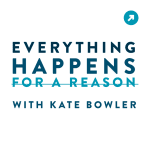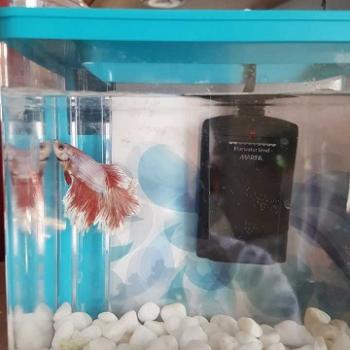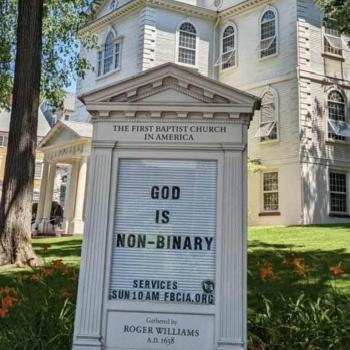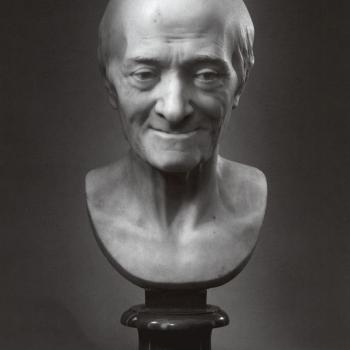If you have been a regular reader of this blog for a while (there are a few of you out there), you may have noticed that most of what I have posted in the last three or four months is familiar. “I’ve read something like this before,” you might be saying. And you would be right. For a number of different reasons, the majority of essays I have posted over the past several weeks are do-overs, golden oldies with appropriate changes and updates to slightly disguise the fact that they are do-overs.
When I first started this blog a bit over ten years ago, I told Jeanne that I would continue doing it until it became “just another damn thing I have to do.” There have been days during this extraordinarily busy and demanding semester where I have come very close to being in that place. I could just say that I’m treading water until the semester ends and my creative juices can start flowing again over Christmas break. But I suspect there’s something deeper that I need to pay attention to.
I’ve often said and written that this blog is a form of spiritual exercise for me, that its intended audience is people like me, and that what keeps me going is that value that I gain both creatively and spiritually from regularly engaging with the places where my faith, my vocation, and my life in general intersect. But I also am obsessed with my blog numbers, am mildly disappointed that this calendar year will be the slowest in terms of visitors in four years, that actual comment conversations are rare . . . in other words, I have many more measures of success than simply affirming that it is good for me in a number of ways. Is anyone really reading it? Is there anyone out whom I am actually connecting with? Or is this pretty much the sound of one hand clapping? Those are the questions I have been asking more and more frequently over the past few months.
While walking Bovina before the sun came up a few mornings ago (which has become another sort of spiritual practice), I listened to a conversation on Kate Bowler’s podcast “Everything Happens” that helped a lot. The guest was Elizabeth Gilbert, whose 2006 book Eat, Pray, Love was a NY Times best seller that now has been translated into more than 30 languages with more than 12 million copies sold. Julia Roberts starred in the 2010 movie version. The podcast title is “Why Your Creativity Matters”—and it turned out to be exactly what I needed to hear that morning.
Early in the conversation, Gilbert observes that every person older than forty years old could write a memoir with the same title: Not Exactly What I Had Planned. The problem is that we live in a culture “that just continues to believe that you can create a purpose driven life and that you can chart and curate your own life.” There is a pathological obsession in our culture focused on making sure that your life has a higher purpose than just having a life. Bookstores and the internet are full of books and sites dedicated to identifying the steps to take in order to have a meaningful life, steps that go something like this:
- Just having a life is pretty amazing, but that’s not good enough. It has to be a purposeful life.
- Each of us is born with a special gift, one unique offering. That’s why you were sent here, to find out what that is, the one thing that you can do that literally nobody else can do. It’s your job in life, your purpose to uncover what that thing is.
- Once you find that thing, you must foster it and master it and curate it.
- Then you must monetize it, because if you don’t, you’re not really successful at it. It’s just a hobby.
- But it’s not enough to monetize it and be very successful at it. You must be an opportunity creator for other people within this purpose that you created. You must uplift other people with your purpose.
- But it’s not enough to uplift other people. You must leave a legacy so that when you are gone, generations after you’re gone the world will be a changed place because you were here.
No pressure.
Gilbert makes an observation then asks an important question. “Everybody I know is struggling from so much purpose anxiety that they can’t live. And what if that’s totally wrong? Nobody ever questions it. But if that’s totally wrong? What if I have literally no idea what my purpose is?” I’m a laid back introvert and in many ways the above steps don’t apply to me in an obvious way. But get to know me as I know me and you’ll find out that they do.
It’s important to me to describe what I do for a living as a “vocation,” not a job. I frequently say that I believe I was born to do what I do. It’s not good enough that I happen to have some skills that make me a decent teacher, skills that have made it possible to make a decent living. No, it has to be a vocation, something that I am called to. I was told from my infancy that God loves me and has a plan for my life—Elizabeth Gilbert is identifying the steps in a secular version of that obsession with plan and purpose.
This is the first brand new from scratch essay I’ve written for this blog in a while, so it is appropriate that I ask myself: Why am I doing this? Not what is it for, but why am I doing it? Once I strip goals, purpose, numbers, and other measures of “success” from the issue, the answer is clear. Writing is one of my primary creative outlets, and this blog provides a way for me to do that regularly. As an introvert, I clarify my thoughts more effectively through writing than through speaking. I write because it is an essential part of who I am. What I picked up the other morning is that this is enough. I don’t need to write for any other reason than that I want to and need to. That’s enough.
As Kate Bowler laughingly told Elizabeth Gilbert, gradually stepping off the meaning and purpose treadmill is “anti-American,” given our obsessions described earlier. I also submit that moving away from an obsession with meaning and purpose might be seen by many as “anti-Christian.” Christians worry incessantly about whether they are in the “center of God’s will,” whether they are following the pre-ordained path established before the foundations of the world just for them. Later in the podcast, Elizabeth Gilbert imagines a conversation between herself and the “God of my understanding who is very affectionate and very funny because that’s the God I need.”
Liz: Am I doing enough? Have I produced enough? Have I helped enough? Have I left a legacy? Am I serving your purpose, God? Are you satisfied with me, Lord?
God: When I’ve got something for you to do, you’ll be notified. It will be very clear. Oh, and until then, be cool for two minutes. Like, be cool for two minutes because you can’t hear me when you are grinding so hard at trying to be so good.
Happy week before Christmas.
















